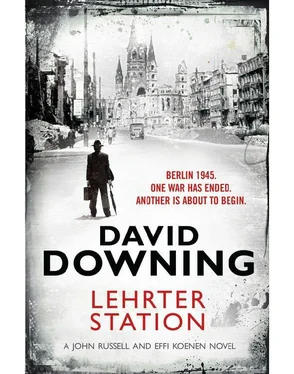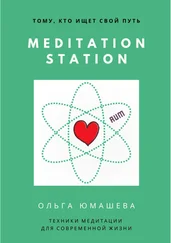David Downing - Lehrter Station
Здесь есть возможность читать онлайн «David Downing - Lehrter Station» весь текст электронной книги совершенно бесплатно (целиком полную версию без сокращений). В некоторых случаях можно слушать аудио, скачать через торрент в формате fb2 и присутствует краткое содержание. Жанр: Шпионский детектив, на английском языке. Описание произведения, (предисловие) а так же отзывы посетителей доступны на портале библиотеки ЛибКат.
- Название:Lehrter Station
- Автор:
- Жанр:
- Год:неизвестен
- ISBN:нет данных
- Рейтинг книги:5 / 5. Голосов: 1
-
Избранное:Добавить в избранное
- Отзывы:
-
Ваша оценка:
- 100
- 1
- 2
- 3
- 4
- 5
Lehrter Station: краткое содержание, описание и аннотация
Предлагаем к чтению аннотацию, описание, краткое содержание или предисловие (зависит от того, что написал сам автор книги «Lehrter Station»). Если вы не нашли необходимую информацию о книге — напишите в комментариях, мы постараемся отыскать её.
Lehrter Station — читать онлайн бесплатно полную книгу (весь текст) целиком
Ниже представлен текст книги, разбитый по страницам. Система сохранения места последней прочитанной страницы, позволяет с удобством читать онлайн бесплатно книгу «Lehrter Station», без необходимости каждый раз заново искать на чём Вы остановились. Поставьте закладку, и сможете в любой момент перейти на страницу, на которой закончили чтение.
Интервал:
Закладка:
And there were no flights to Berlin, the captain added cheerfully. They would have to continue their journey by train.
There were no sleeping berths on this train, only a motley collection of pre-First War vintage carriages. Groups of GIs were flooding the compartment coach to Russell’s right, and the crates of bottles being ferried aboard suggested a rowdy journey. He went the other way, into a mostly German-populated saloon, and found two rear-facing seats opposite an oldish couple in their sixties. The man wore a pince-nez and clothes that Bismarck would have liked; the woman had an unusually long neck and a face that would once have been beautiful. Neither looked in good health, but she seemed determined to be cheerful. They were going to visit their daughter-in-law and grandchildren, she told them — their son had been killed in Russia. ‘The schools are open again,’ she said with evident satisfaction. ‘I’ve brought the children some apples,’ she added, patting her bag. ‘I don’t suppose they have any fruit in Berlin.’
Her husband didn’t say much, but obviously doted on her. Russell had the feeling that he’d recognised Effi, but was too well-mannered to say anything.
They fell asleep soon after the train got underway, her head sliding slowly down until it rested on his shoulder. This encouraged Effi to arrange herself in similar fashion, and soon she was sleeping too, despite the growing cacophony of drunken voices emanating from the next carriage. Russell tried closing his own eyes, but to no avail.
Shortly after ten they stopped in Gotha, where Red Army soldiers lined a surprisingly well-lit platform. But there was no onboard inspection, and the train was soon moving again. Russell found himself slipping in and out of dozes, awakened by the frequent stops and lulled back to sleep during each brief episode of forward motion. It was almost one in the morning when a just discernible station name told him they were around fifty kilometres from their destination, and only a few minutes later when the train inexplicably slowed to a halt in what looked like the middle of a forest. A flutter of movement in the darkness outside was probably the wind in the trees, but a sudden loud report from back down the train sounded like the slam of an outside door. A passenger across the aisle pressed his shielded eyes up against the window, then turned back to his partner with a shrug of incomprehension.
Was something happening?
Apparently not. The train started moving again, and Russell sank back in his seat, feeling an exaggerated sense of relief. He was still reflecting on all those unexplained little mysteries that punctuate life when the sound of a shot cut across the rhythmic clatter of the wheels. Effi’s head jerked off his shoulder, and the eyes of the old couple opposite were suddenly wide open.
There was shouting in the next carriage now, but no more shots. In their own, some people were halfway to their feet, others almost cringing in their seats. And then a young man with a machine pistol came through the vestibule door, swiftly followed by a boy of about twelve and two other men carrying submachine guns. All four had Slavic faces, and faded patches on two of the jackets bore witness to vanished Foreign Workers badges.
One of the men walked swiftly down the aisle to the door at the other end, disappearing through it for a moment, then returning to stand sentry. While the other man with a submachine-gun held his position at the opposite end, the man with the machine pistol suggested, in heavily Russian-accented German, that the occupants of the first two bays deposit any valuables in the old Reichspost sack that the boy was helpfully holding open.
The operation went remarkably smoothly, once the man with the pistol had clarified what he meant by valuables. Cigarettes, canned food and fresh vegetables joined a few items of jewellery and even fewer watches in the swastika-stencilled sack. Would anyone resist? There were two American officers further down the carriage, but neither seemed armed. Most of the Germans seemed more resigned than angry, as if such robberies were just one more aspect of post-war life that had to be endured.
And what, Russell wondered, was happening elsewhere in the train? Much the same, he assumed, which suggested a gang of considerable size.
The sack was drawing nearer, the Russian with the machine pistol working his way through suitcases and pockets with the sort of professional efficiency that suggested previous experience. The boy looked bored.
Their turn arrived. There was no treasure in the old couple’s suitcase, and only the apples in the bag. The woman stifled a protest as these was taken, but there were tears in her eyes. Feeling Effi stiffen beside him, Russell was suddenly afraid that she’d react as she had in London, and this time get shot for her pains. He leapt up to get their suitcase from the rack, which put him between her and the Russian, and then sought to hold the man’s attention by telling him in his own language that they weren’t carrying any valuables. The Russian disagreed, adding Lord Peter Wimsey and their spare shoes to the bulging sack before demanding Effi’s handbag.
She handed it over, much to Russell’s relief, with no more demur than a contemptuous look. The man removed her vanity case, handed back the bag, and offered a slight bow, as if recognising royalty. She had played a Russian princess once, Russell remembered, so some sort of obeisance was only fitting.
‘Rosa helped me choose that compact,’ Effi angrily hissed in his ear.
‘I know. And she wouldn’t want you getting shot over it.’
The sack moved on. The train rumbled across several bridges in quick succession, and two surprisingly well-lit streets and a straight stretch of dark water briefly showed in the window. The latter had to be the Teltowkanal. Anhalter Station couldn’t be more than fifteen minutes away.
Obviously aware of this, the robbers were working even faster. The train was on the final viaduct approaches when the man standing sentry at the rear vestibule door started down the aisle, waving his weapon to deter any last minute resistance. Turning in his seat, Russell watched all four of them disappear through the door at the other end. There was a silence lasting several moments, then everyone seemed to start talking. But no one left their seat.
The two American soldiers were both grinning, as if they’d just seen an excellent review sketch.
The train was slowing down, and Russell thought he heard gunfire in the distance. He and Effi exchanged questioning looks, but there was no repetition. One of the passengers said something that made the others laugh.
They were drawing into the station, and Russell could see lines of boxcars stabled in the other platforms, some in the process of being unloaded. He remembered reading that the Americans were using Anhalter Station as their main entry point for supplies.
Where were the Russians? He supposed they might have jumped off, but surely the train had been going too fast. They were probably just waiting by the doors, secure in the knowledge that most of their victims would sit tight until they were sure it was safe. The Russians would just step down from the train, load up their sacks on porters’ trolleys, and wheel them down to their getaway lorries. Welcome to Berlin.
The train stopped. A minute went by, and another, without any sounds of commotion outside. In fact people from further down the train were walking past the window, apparently oblivious to any danger. The passengers in their carriage began gathering their things together, and the first brave soul inched his way out of the vestibule door. Russell took their suitcase down again and led the way to the outside world, standing in the doorway for a long moment, listening to the murmurs of conversation, the slap of feet on concrete. Hearing nothing suspicious, he stepped down onto the dimly lit platform. The sky was clear, stars winking down through the skeletal remains of the station roof.
Читать дальшеИнтервал:
Закладка:
Похожие книги на «Lehrter Station»
Представляем Вашему вниманию похожие книги на «Lehrter Station» списком для выбора. Мы отобрали схожую по названию и смыслу литературу в надежде предоставить читателям больше вариантов отыскать новые, интересные, ещё непрочитанные произведения.
Обсуждение, отзывы о книге «Lehrter Station» и просто собственные мнения читателей. Оставьте ваши комментарии, напишите, что Вы думаете о произведении, его смысле или главных героях. Укажите что конкретно понравилось, а что нет, и почему Вы так считаете.












